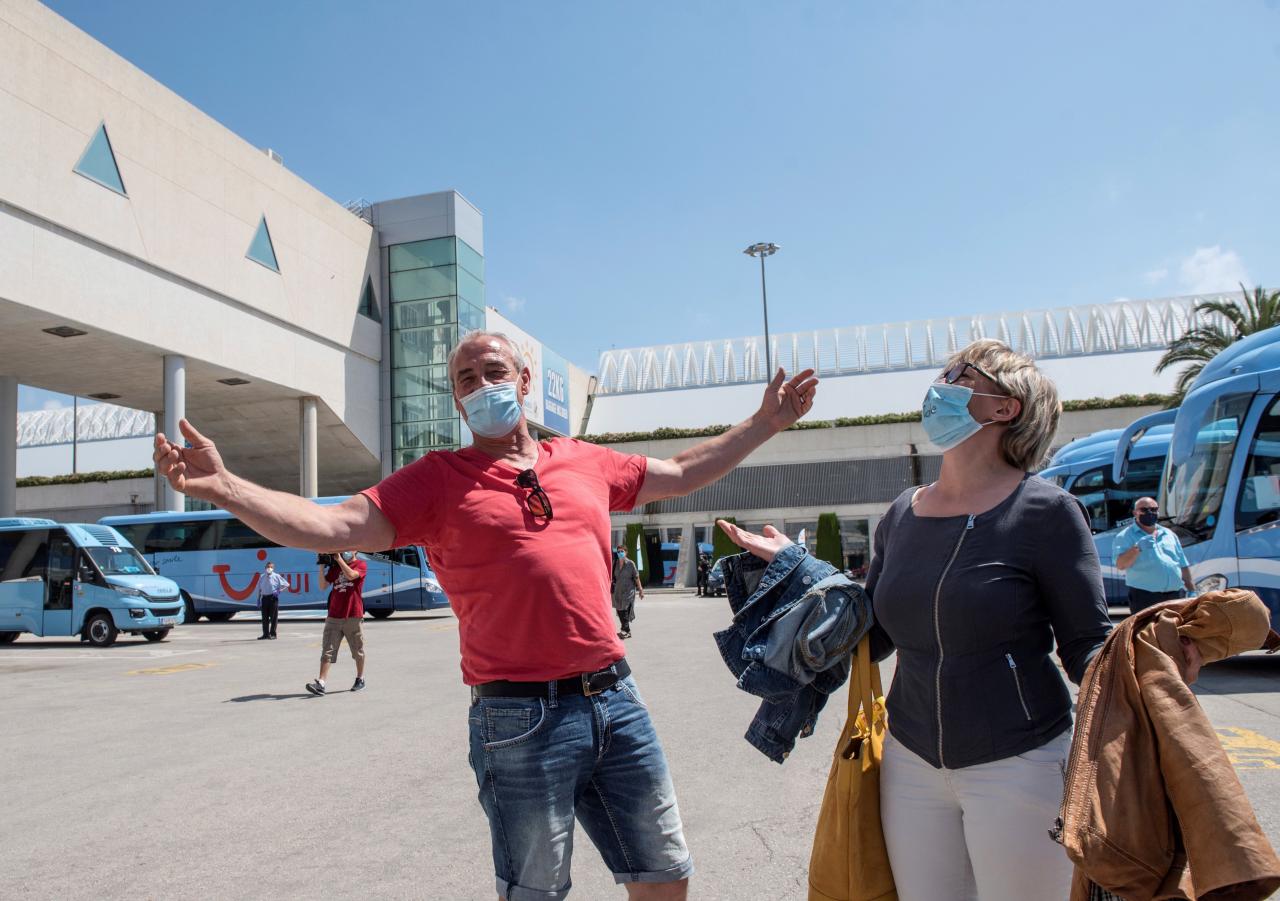
German tourists arriving last June in Mallorca under the pilot tourism. | Efe
Palma22/03/2021 15:41
Do you remember when the new normal started? In case you’ve forgotten, it was the twenty-first of June last year. The phases of de-escalation had been phased out. The state of alarm was over, and tourists were beginning to move amongst us.

No comments
To be able to write a comment, you have to be registered and logged in
Currently there are no comments.